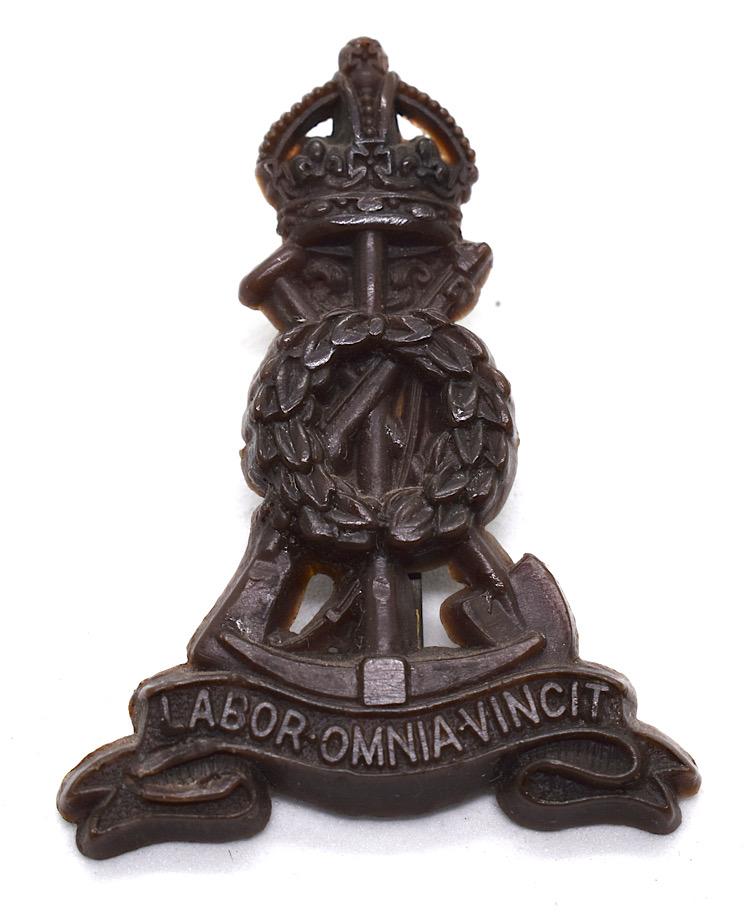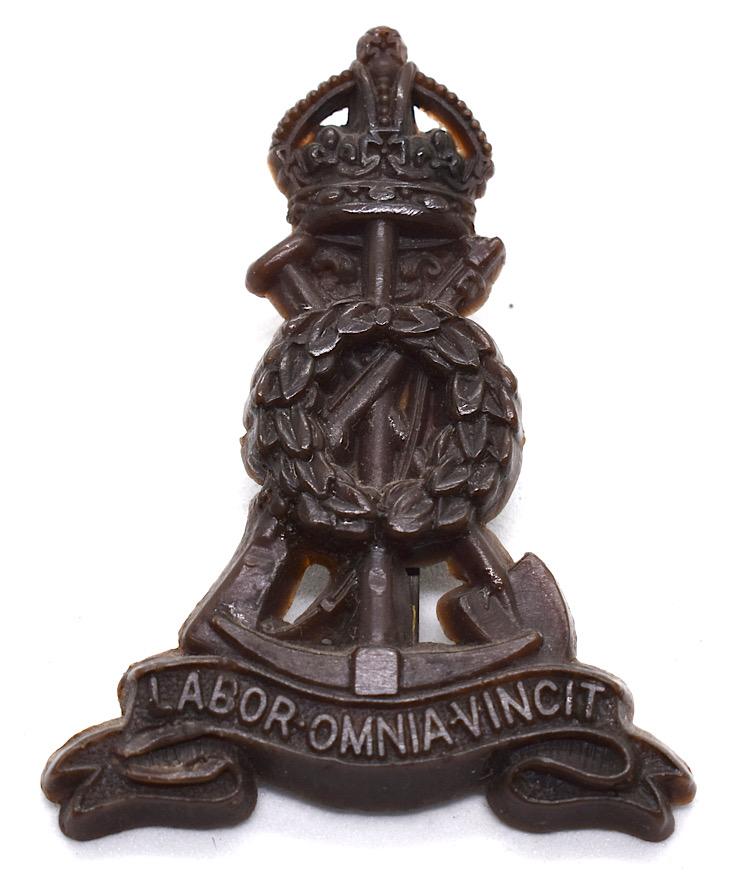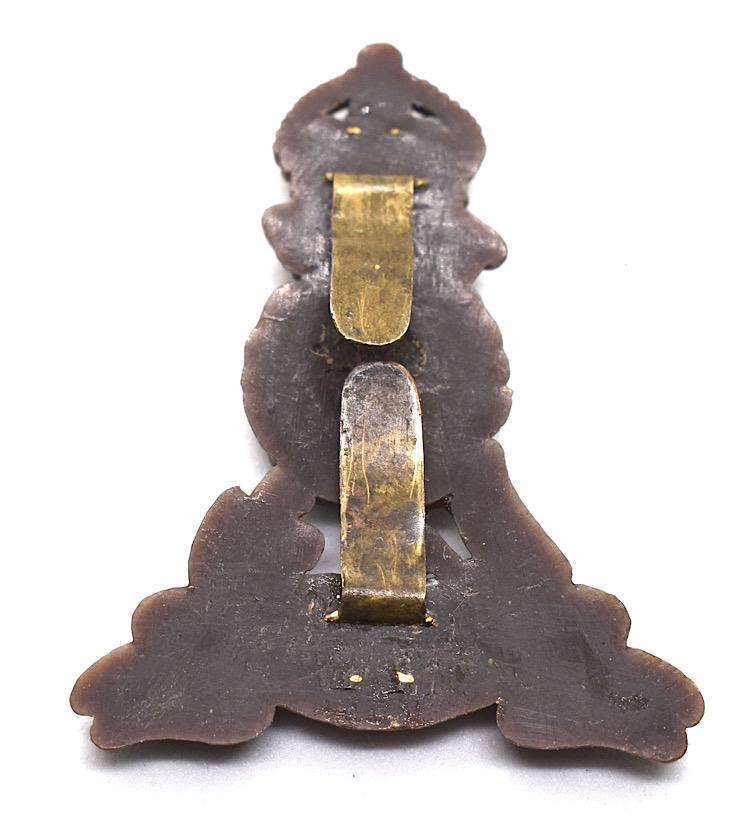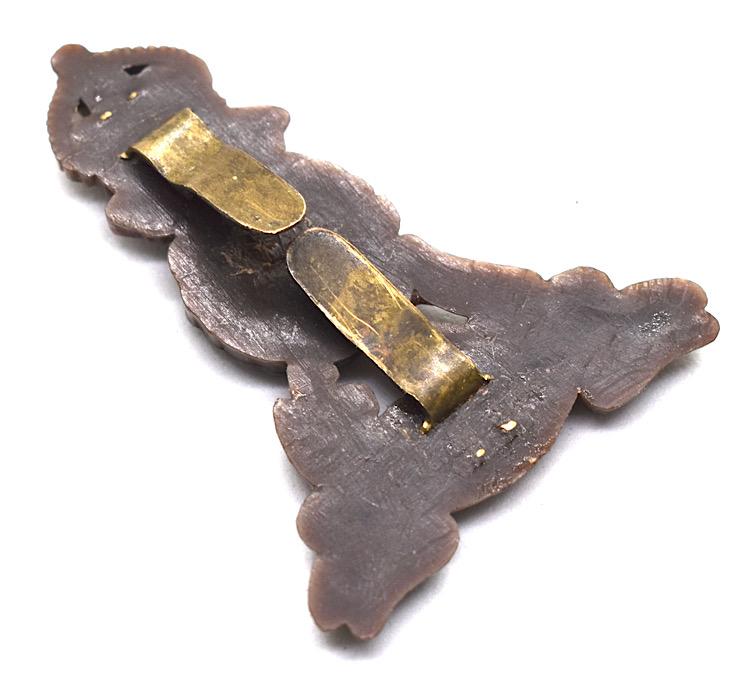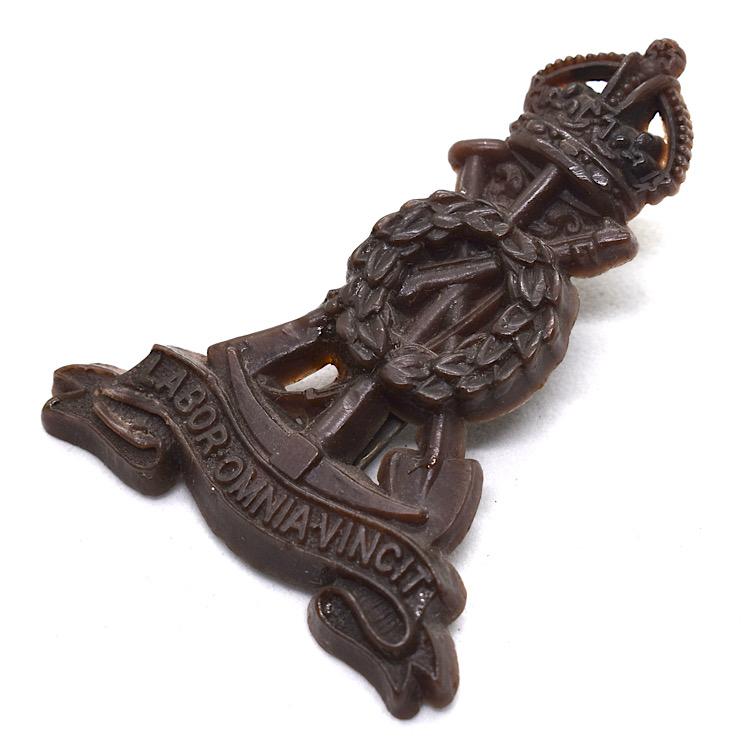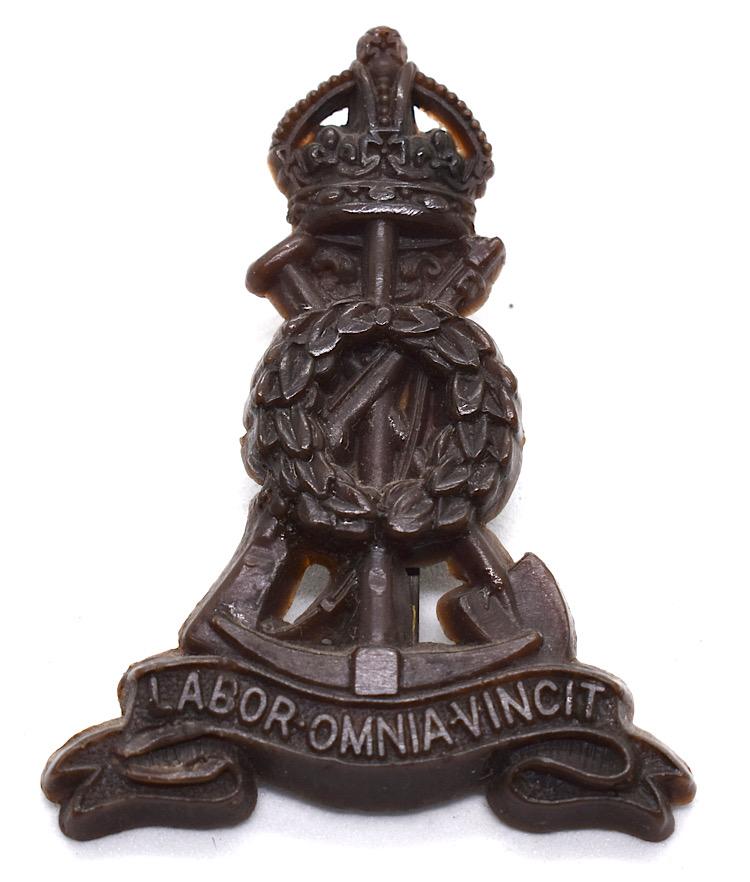British WW2 cap Badge Royal Pioneer Corps
British WW2 cap Badge Royal Pioneer Corps
Very nice economy (plastic) cap badge
“Labor Omnia Vincit”
In September 1939, a number of infantry and cavalry reservists were formed into Works Labour Companies, which were soon made the Auxiliary Military Pioneer Corps (AMPC); a Labour Directorate was created to control all labour force matters. A large number of Pioneers served in France with the British Expeditionary Force.
During the Battle of France in May 1940, No. 5 Group AMPC commanded by Lieutenant Colonel Donald Dean VC, were engaged in labouring tasks in the Doullens area, near Amiens, when the group were threatened by the advancing Germans. After requisitioning a train and following a fire-fight with the leading German units the Group were able to reach Boulogne-sur-Mer. Here Dean was ordered to help establish a defensive perimeter around the town.
On 23 May, the Germans attacked in earnest; in fierce fighting at their barricades, the pioneers destroyed one tank by igniting petrol underneath it. The pioneers were the last to fall back from the perimeter and most were evacuated from the harbour. Further to the south, on 18 May, an infantry brigade was improvised from several AMPC Companies under the command of Lieutenant-Colonel J. B. H. Diggle. Known as "Digforce", the brigade became part of Beauman Division and fought in defence of the Andelle and Béthune rivers on 8 June 1940 against the 5th and 7th Panzer Divisions. Digforce brigade and thousands of other BEF Pioneers were evacuated to England in Operation Ariel. An unknown number of AMPC troops were killed when the HMT Lancastria was sunk off St Nazaire on 17 June.
On 22 November 1940, the name AMPC was changed to Pioneer Corps. In March 1941, James Scully was awarded the George Cross. Corps members have won some thirteen George Medals and many other lesser awards.
A total of 23 pioneer companies took part in the Normandy landings. The novelist Alexander Baron served in one of these Beach Groups and later included some of his experiences in his novels From the City From the Plough and The Human Kind; he also wrote a radio play about the experience of being stranded on a craft attempting to land supplies on the beaches of Normandy. Nos. 85 and 149 Companies, Pioneer Corps served with the 6th Beach Group assisting the units landing on Sword Beach on D Day, 6 June 1944.
Overal a very nice detailed cap badge in very good condition.
Code: 66525



